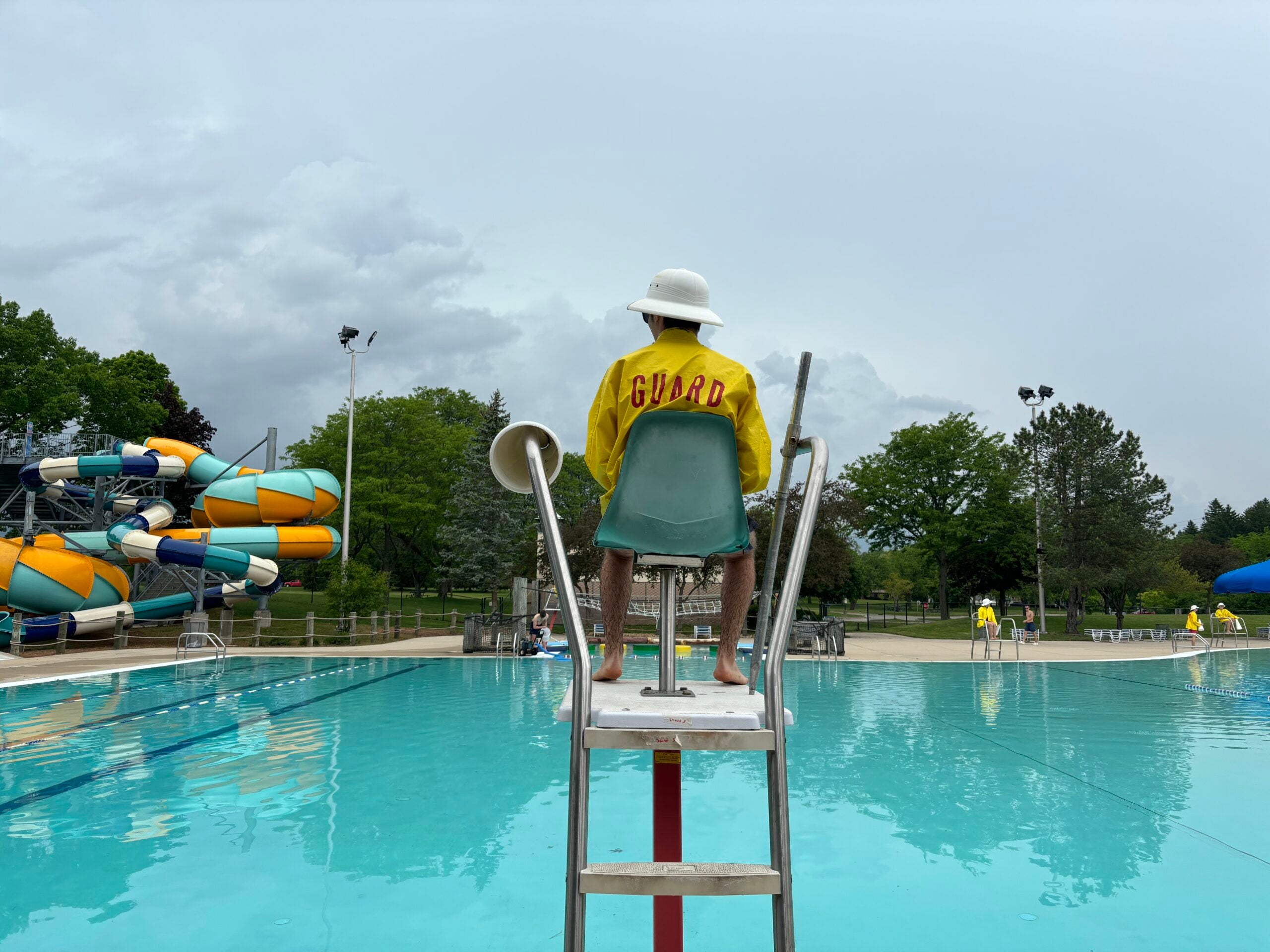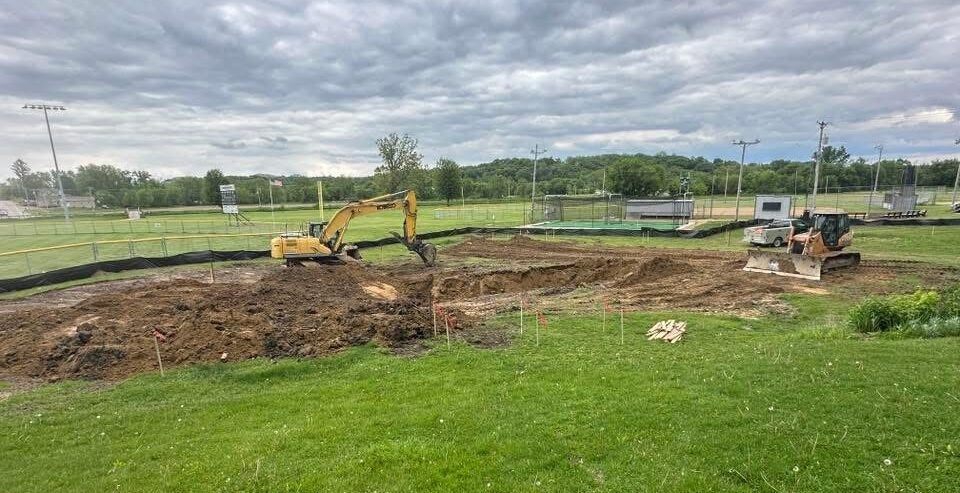On a rainy Friday before the start of summer swim season, dozens of teenage lifeguards practiced water rescues at Cool Waters Aquatic Park in West Allis. It takes about 50 guards to staff the pools, slides and obstacle courses.
The county swimming pool opened on Memorial Day weekend. But many other public pools will remain shuttered this year amid a persistent lifeguard shortage.
Milwaukee County needs 250 lifeguards to fully staff its pools and aquatic centers. With only 136 guards signed up this summer, only seven of its 11 traditional deep-well pools and aquatic centers will be open. While it’s an improvement from years past, the county is still short of what it needs to operate at full capacity.
News with a little more humanity
WPR’s “Wisconsin Today” newsletter keeps you connected to the state you love without feeling overwhelmed. No paywall. No agenda. No corporate filter.
According to the American Lifeguards Association, there is a growing concern that public swimming pools across America may be closed again this summer due to a lifeguard shortage. Last year, about a third of the country’s 309,000 public swimming pools remained closed or opened sporadically.
Andrea Wallace with Milwaukee County Parks said it will take years to rebuild the county’s lifeguard workforce.
“We need guards so that we can open pools, so that we can teach people how to swim, so that we can have guards, so we can open more facilities,” Wallace said.
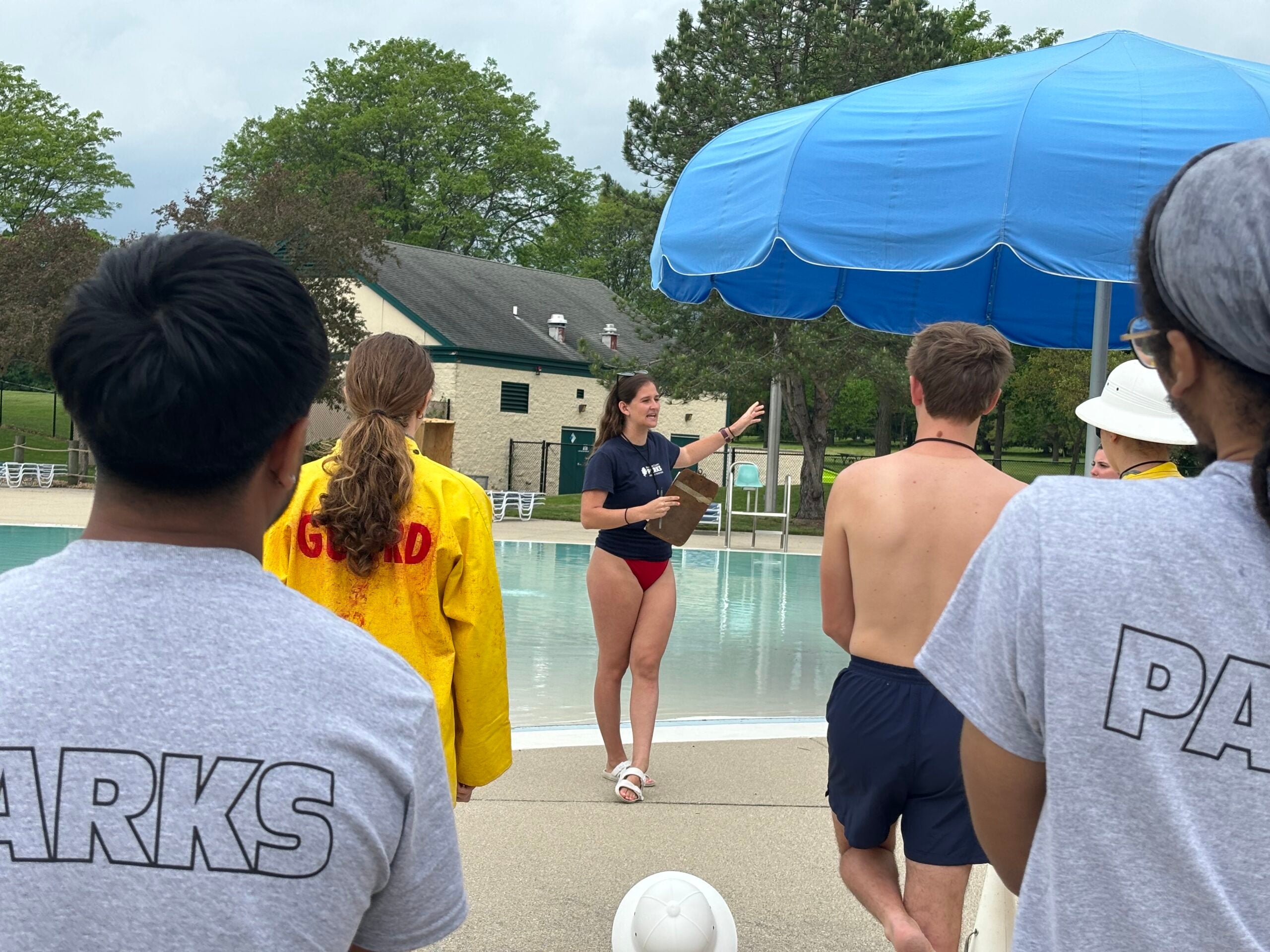
The American Lifeguards Association attributes the shortage, in part, to the disruption caused by the COVID-19 pandemic. Pools were closed and lifeguard trainings and certifications were put on hold.
Some smaller public parks and recreation departments have been able to recover.
Marathon County has almost met its quota of 40 guards to staff three pools. Daniel Schmid, recreation coordinator, said having fewer facilities helps.
“I think we’re a little bit insulated from wider trends,” Schmid said.
Solutions: bolster recruitment and retention efforts
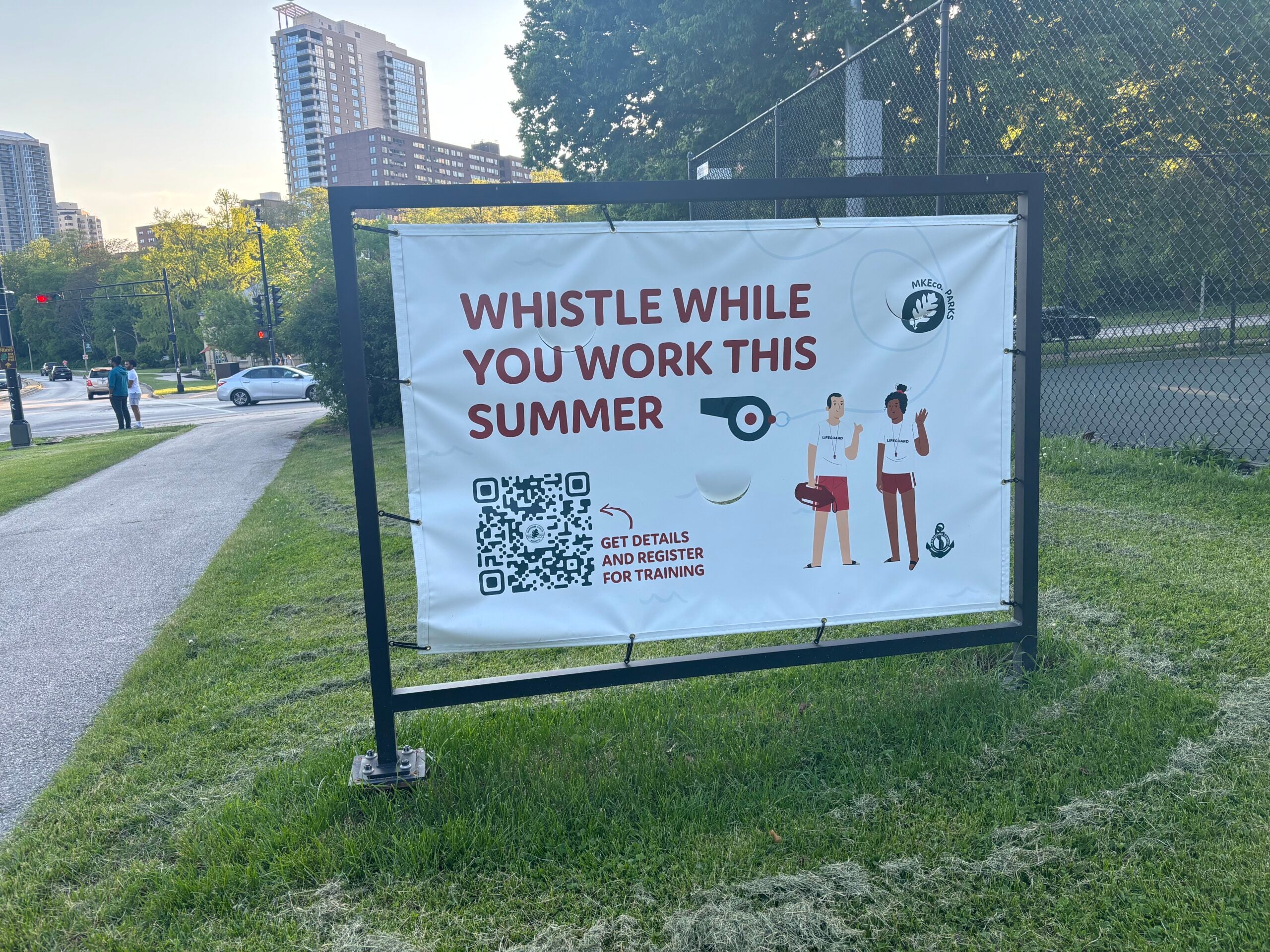
Milwaukee County Parks is already recruiting lifeguards for summer 2025 in hopes of avoiding future shortages. It’s offering employees perks like Summerfest and Brewers tickets, signing and retention bonuses as well as increased pay.
Municipalities emphasize lifeguarding is an essential career instead of a summer job strictly for teenagers. All the necessary lifeguard positions are filled in Eau Claire. The city’s recreation department operates one city pool staffed with approximately 50 guards.
Christine Mohr, facility and program supervisor for the recreation division, said lifeguarding is a respectable job that shouldn’t be overlooked.
“A lot of people don’t know what lifeguarding all entails,” Mohr said. “It’s making sure you’re searching for people that need help, keeping the public safe and enforcing the rules. You have to know what to do in an emergency.”
Some counties, like Milwaukee and Marathon, cover the cost of lifeguard certification. In Marathon County, Schmid earned his lifeguard instructor certification so there could be three staff members training guards.
“I think just being proactive as far as who we have on staff and how we can train and manage our lifeguards helps a lot,” Schmid said.
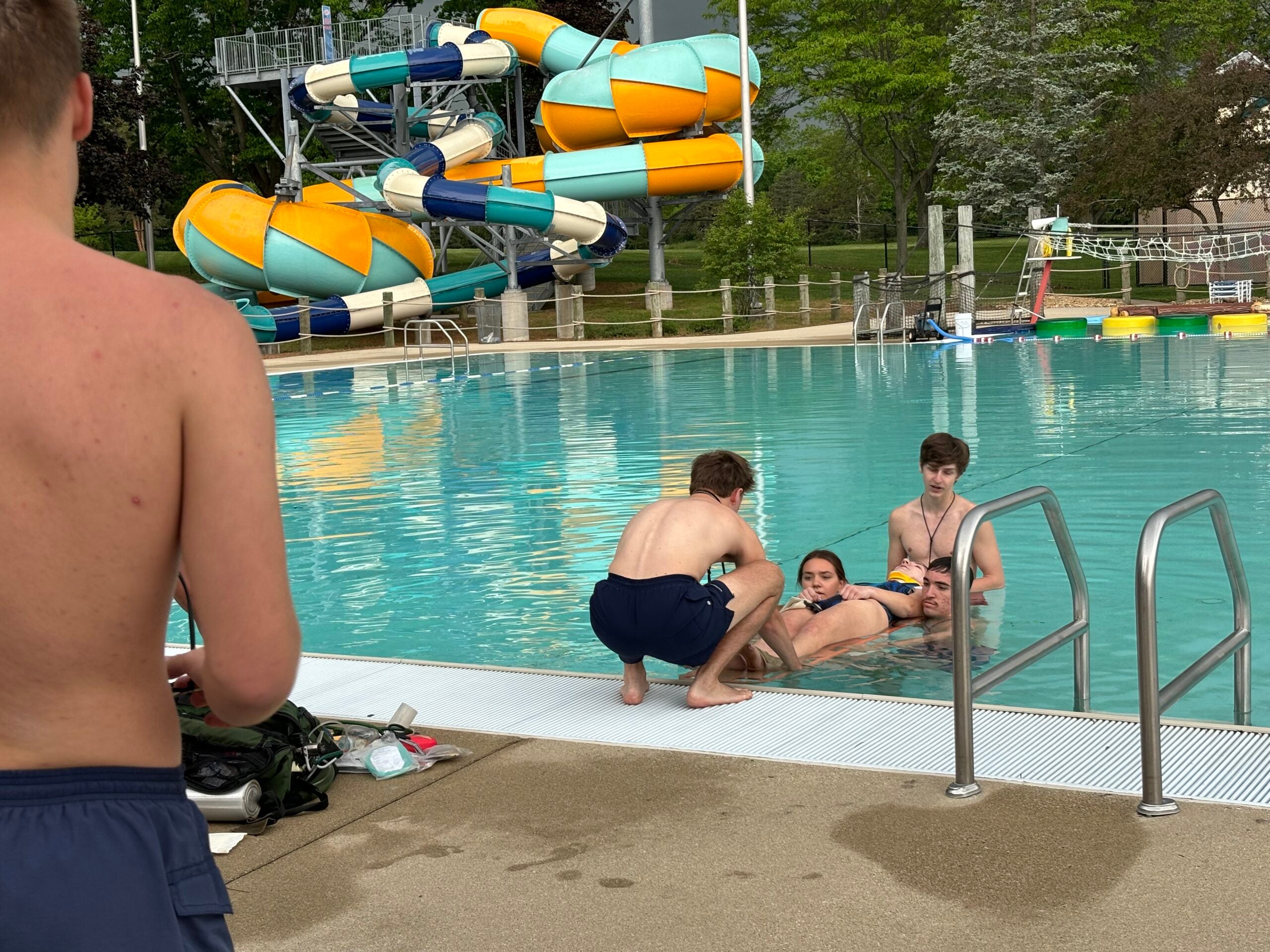
Many recreation departments focus on retaining first-year guards. There will be 12 new lifeguards in Eau Claire this summer. Mohr said the strategy is to have current employees recruit their friends to join the team.
“It’s the work environment. We have a very cohesive staff. It’s a fun place to work,” Mohr said.
Wallace said Milwaukee County Parks had interested applicants who didn’t meet the requirements.
“How do we keep them involved throughout the summer? Can they work as park workers and we’ll work on their swim skills?” Wallace said.
Back at Cool Waters in West Allis, the guards in training need to be prepared for emergencies when the pool is crowded. Wallace said thousands of people come out when the temperature is in the triple digits. There’s some indication this summer could be especially hot.
“It’s really important in the community that people have a place to go to cool down and to recreate, living healthy lifestyles,” Wallace said.
Wisconsin Public Radio, © Copyright 2025, Board of Regents of the University of Wisconsin System and Wisconsin Educational Communications Board.

